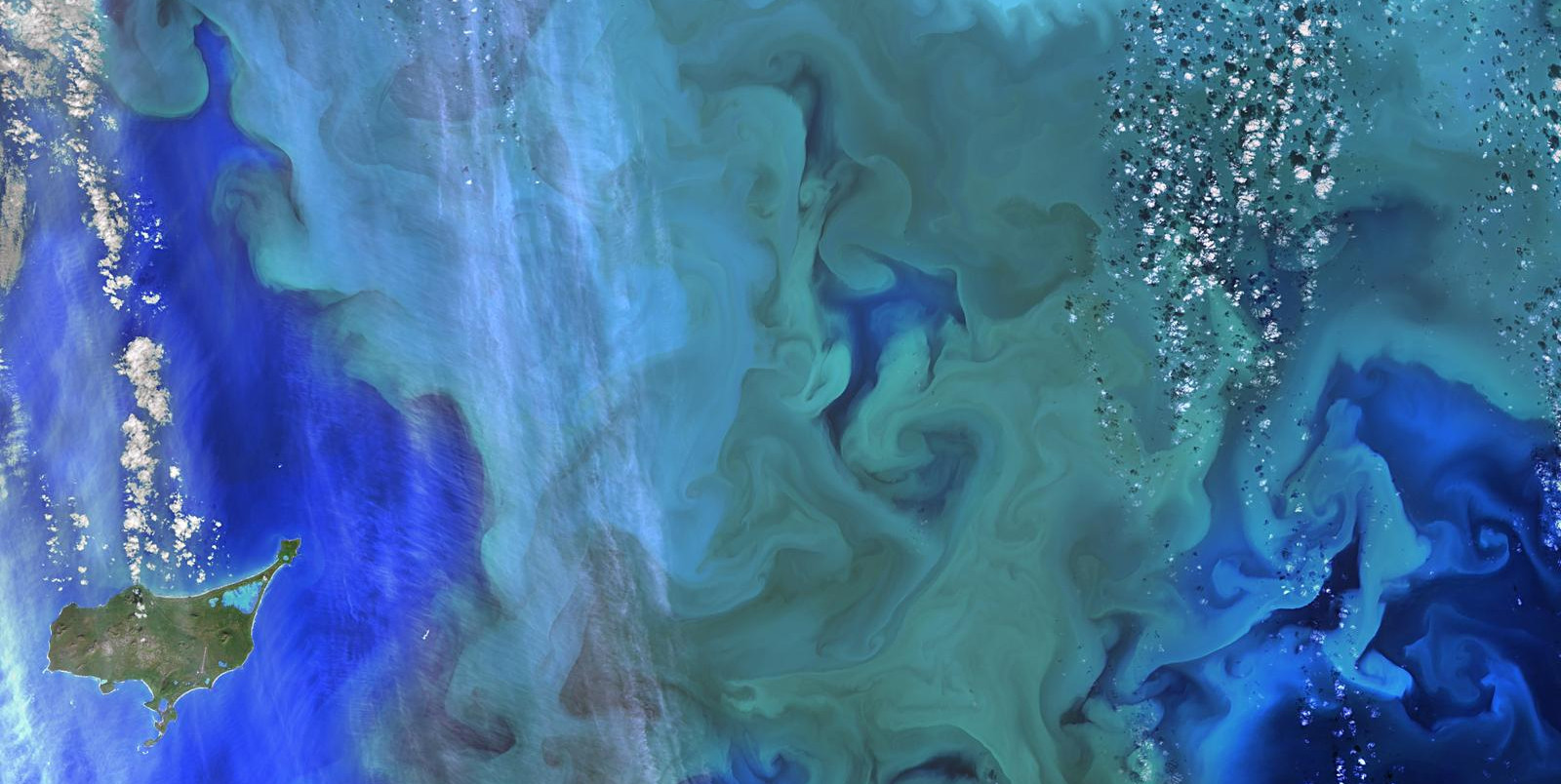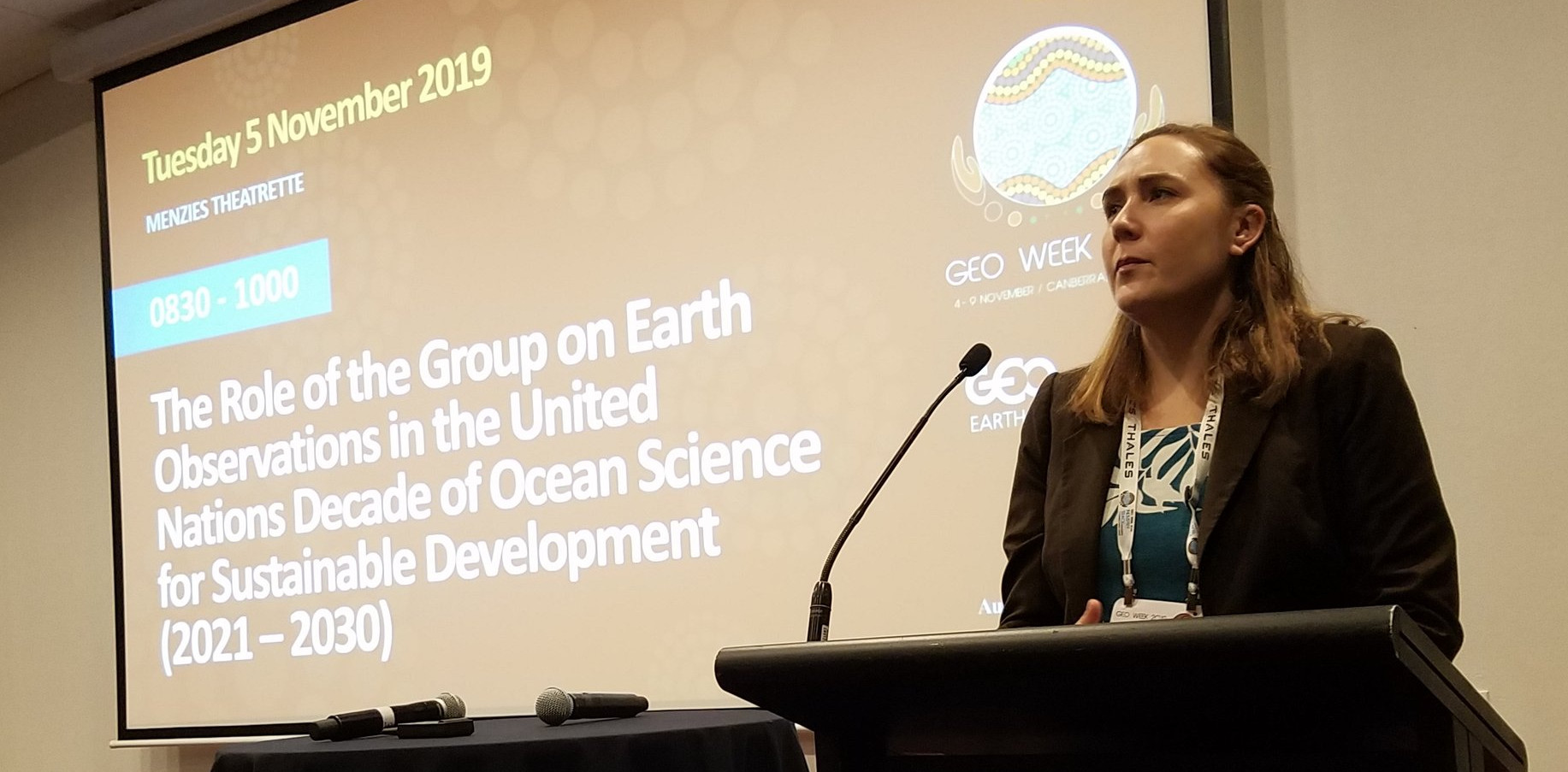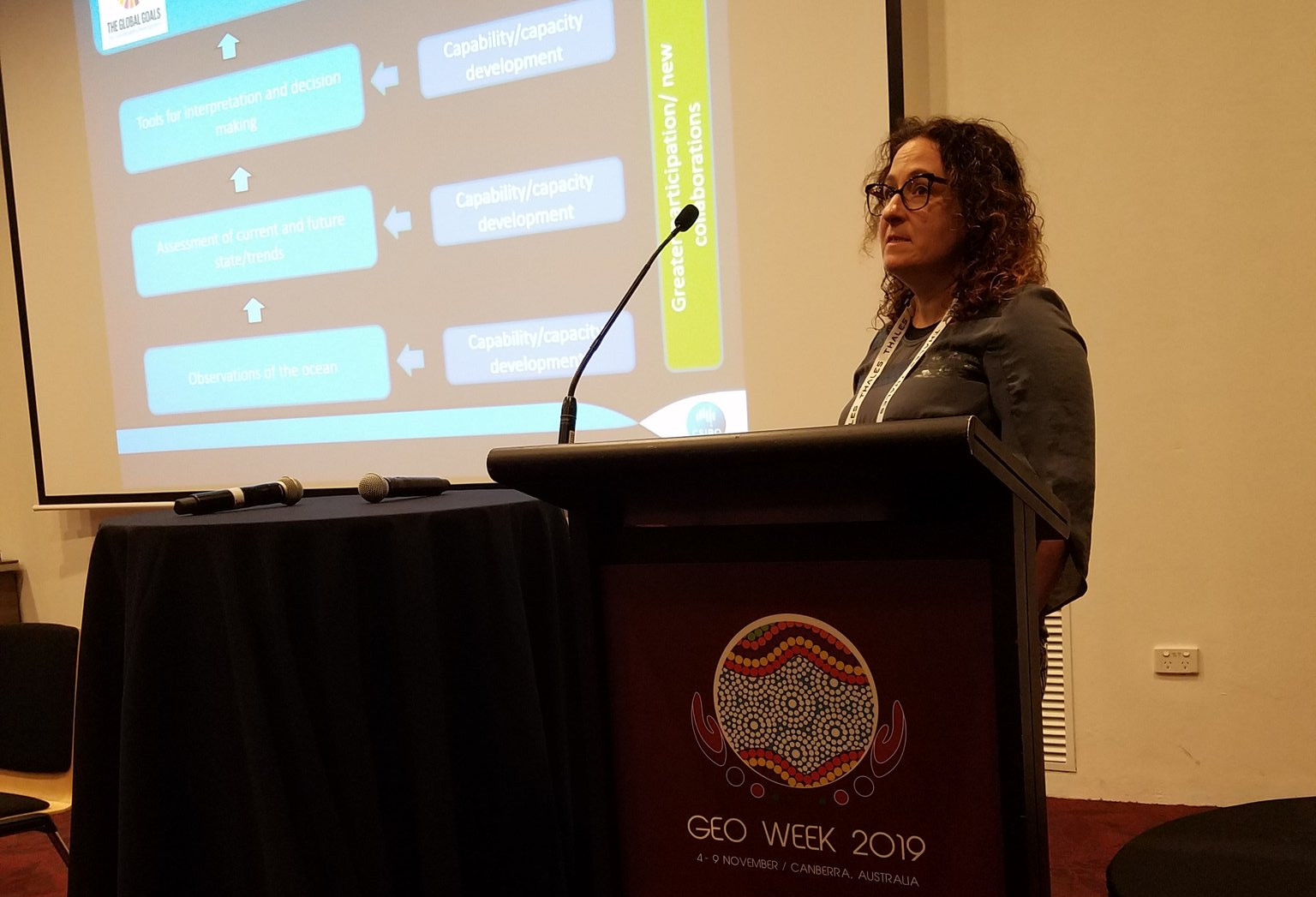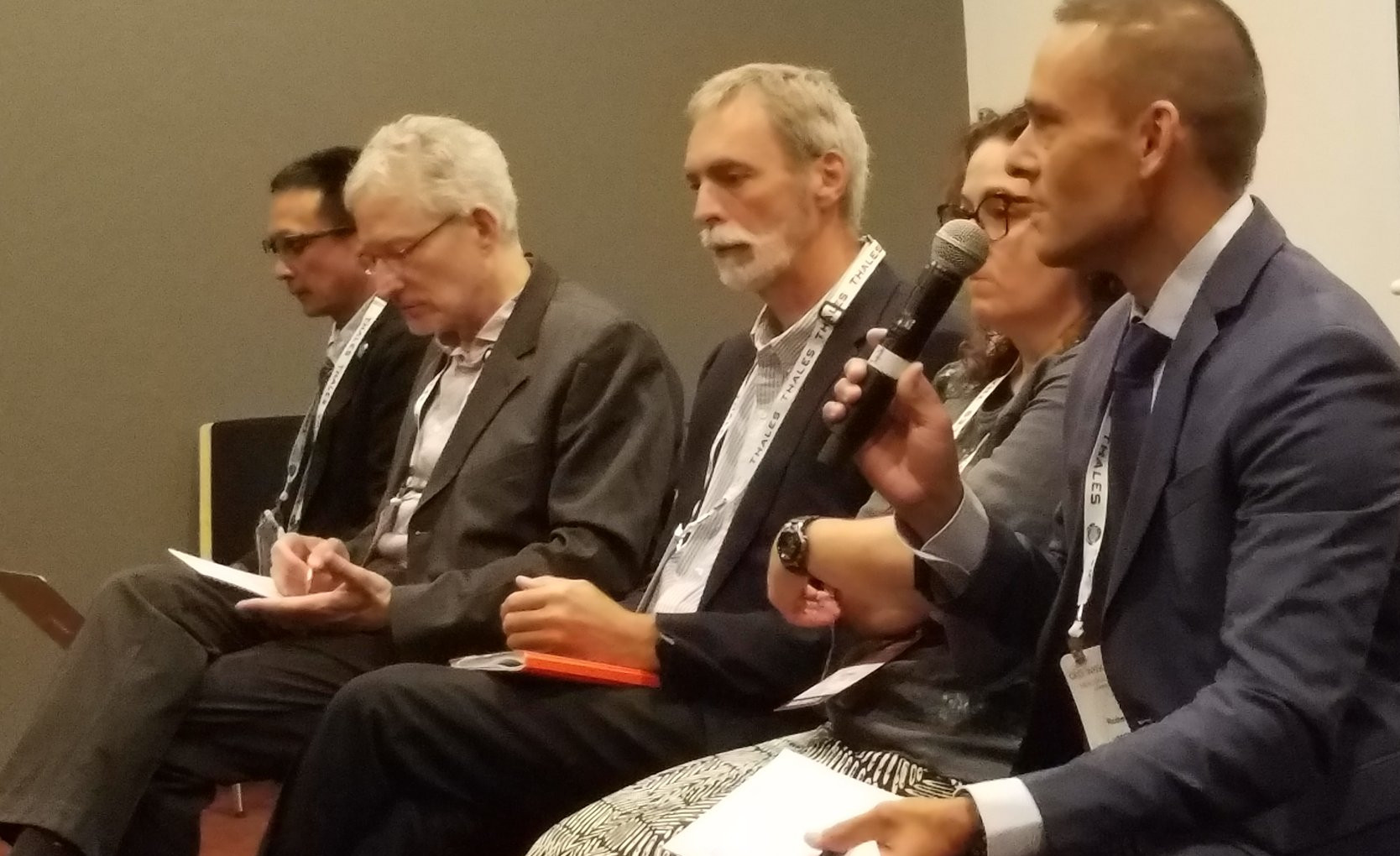Blog / January 10, 2020
The United Nations has announced that a Decade of Ocean Science for Sustainable Development will be held from 2021 to 2030.


This Decade will focus on global action using the best-available ocean science to sustainably manage the oceans, to provide common frameworks, and to achieve the 2030 Agenda for Sustainable Development.
It is clear that our oceans are in peril. The World Ocean Assessment has documented a cycle of decline in ocean health. Over the coming decades, a changing climate, growing global population and multiple environmental stressors will have significant impacts on our ocean.
The Group on Earth Observations (GEO), through the work of the GEO Blue Planet Initiative, is working to monitor the world oceans using openly available and shared Earth observations data.
In partnership with the Global Ocean Observing System (GOOS), a sustained collaborative system of ocean observations that encompasses in situ networks and satellite systems, GEO is supporting governments, UN agencies and individual scientists with Earth observations data on our world’s oceans and is committed to supporting this decade of action.
The GEO Blue Planet Initiative has delivered GEO’s proposed contribution to the Decade of Ocean Science for Sustainable Development to UNESCO’s Intergovernmental Oceanographic Commission (IOC).
Focusing on the knowledge gaps, scientific questions and priority areas that should be addressed, the GEO Blue Planet Initiative has produced a comprehensive set of inputs surrounding the need for a clean ocean; a predicted ocean whereby society has the capacity to understand current and future ocean conditions, forecast their changes and impacts on human wellbeing and livelihoods; a safe ocean whereby human communities are protected from ocean hazards and where safety of operations at sea and on the coast is ensured; and a sustainably harvested and productive ocean.
The GEO Blue Planet Initiative is proposing to leverage GEO’s convening power and interdisciplinary work programme to effectively utilize and apply Earth observations data in support of the UN Decade on Ocean Science for Sustainable Development.
These ideas were developed at GEO Week 2019 at a dedicated Side Event where panellists presented and discussed how GEO can most effectively contribute to the Decade of Ocean Science for Sustainable Development.






In addition, GEO is committing to support capacity development and technology transfer, advance partnerships and financing, improve access to information, data and knowledge and to build support though communication and awareness raising.
For more information on GEO’s proposed contribution, read the full statement here.
Learn more about the GEO Blue Planet Initiative on the website.
Authors: GEO’s preliminary inputs to the Decade of Ocean Science for Sustainable Development was drafted with contributions from participants of a GEO Week 2019 side event on the Decade and inputs from a variety of GEO activities including GEO Blue Planet, the Marine Biodiversity Observation Network (MBON) of GEO BON, GEO-DARMA, GEO AquaWatch, EO4EA and the regional GEO networks. Dr. Emily Smail (Executive Director of the GEO Blue Planet Initiative) served as the document editor.
Thank you for your subscription to the GEO Week 2019 mailing list.